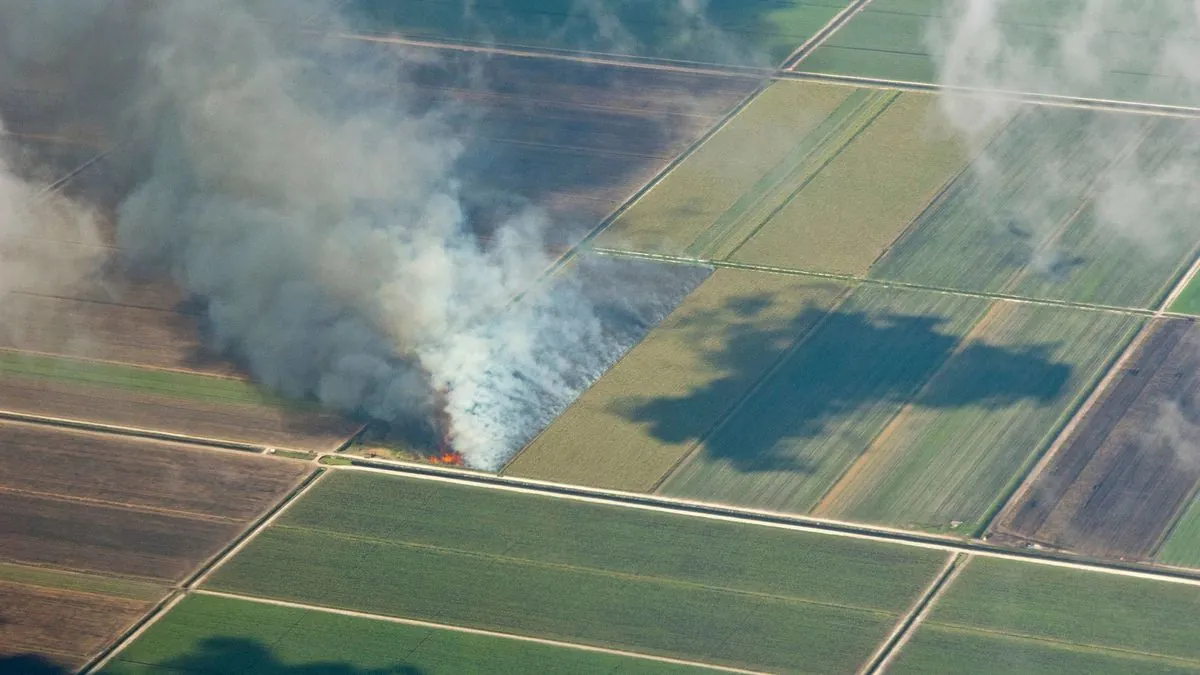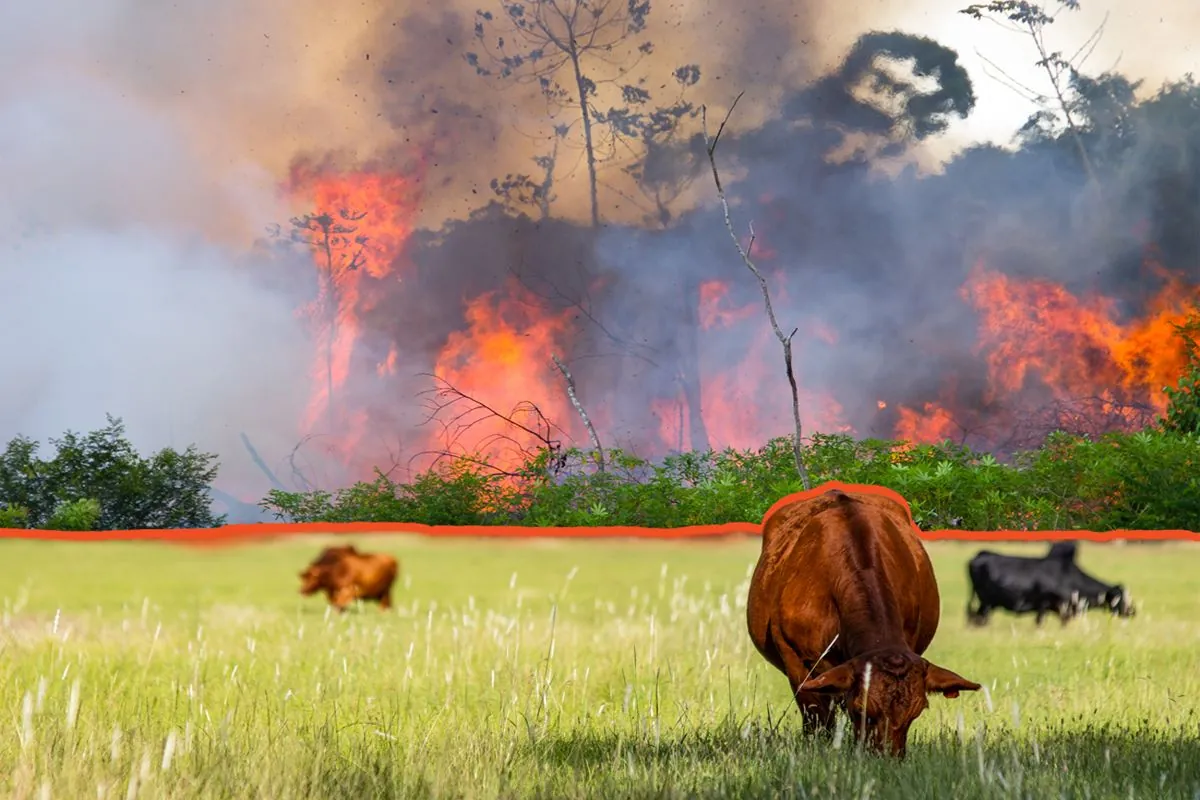Wildfires Ravage São Paulo State, Impacting Agriculture and Communities
Severe wildfires in northern São Paulo state have led to sports bans, road closures, and agricultural losses. The Brazilian government has implemented emergency measures to combat the blazes.

In August 2023, northern São Paulo state, Brazil's most populous region with over 46 million inhabitants, faced a severe wildfire crisis. The blazes, which tore through sugarcane fields, had far-reaching consequences for local communities and the agricultural sector.
The fires were so intense that they forced officials to prohibit outdoor sports in affected areas. In Ribeirão Preto, a city known as the "Brazilian California" due to its agricultural wealth, a match in the Brazilian Championship (Brasileirão) was canceled. The smoke was so thick that it reduced visibility on state highways, leading to closures.
Silvio Dantas, a 56-year-old farmer, described the dire situation: "The firefighters are unable to control the flames. We can't do anything. The fire has burned plants, destroyed houses and killed cattle. This is very tough." The loss of livestock was particularly devastating, with local television showing images of cattle that had succumbed to heat and smoke inhalation.

In response to the crisis, São Paulo Governor Tarcisio de Freitas established an emergency task force. He stated, "We are chartering planes to spray water in addition to fire department aircraft." The government reported that 36 cities were on "high alert" due to the fires, which were exacerbated by the peak dry season's parched fields and high temperatures.
The wildfire crisis took a tragic turn on August 18, 2023, when two firefighters lost their lives while battling flames at a sugar mill in Urupes, near Ribeirão Preto. The fire in that area alone destroyed 200 hectares of sugarcane plantation.
The sugar industry, a crucial part of Brazil's economy as the world's largest exporter of sugar, was significantly impacted. Raizen, the world's largest sugarcane processor, halted operations at its Sertaozinho plant on August 17, 2023, due to the fires in surrounding fields. This disruption highlighted the vulnerability of the industry, which accounts for about 20% of global sugar exports.
The effects of the wildfires extended far beyond the immediate area. In São Paulo city, located 350 km south of the most affected regions, smoke filled the sky on August 18, 2023, though it had cleared by the following day. This incident underscored the fact that wildfire smoke can travel hundreds of kilometers, affecting air quality in distant urban centers.
The August 2023 wildfires in São Paulo state were part of a broader pattern of intensifying fire seasons in Brazil. The Pantanal, the world's largest tropical wetland, experienced unusually early wildfires starting in late May 2024. Additionally, the Amazon rainforest, which covers approximately 5.5 million square kilometers (60% in Brazil), saw fire numbers surge to a two-decade high in July 2024.
These events have raised concerns about the impact of climate change on wildfire frequency and intensity. They also highlight the need for better forest protection and deforestation control in Brazil, issues that have drawn international attention. As wildfires continue to pose significant challenges, their effects on agriculture, air quality, and carbon dioxide emissions remain critical concerns for Brazil and the global community.


































